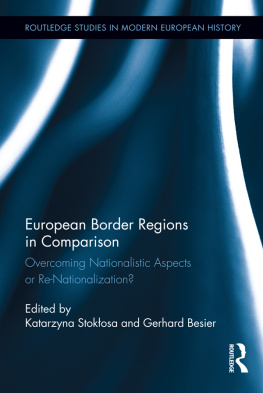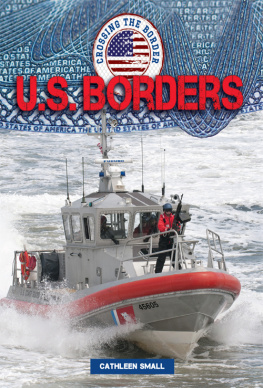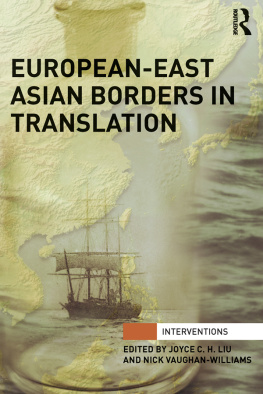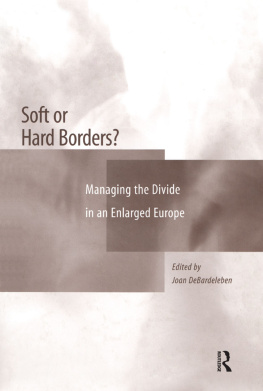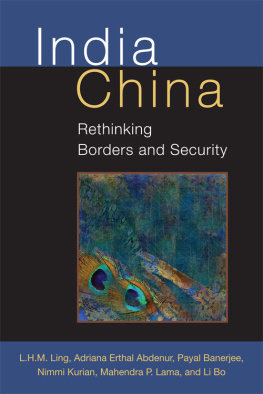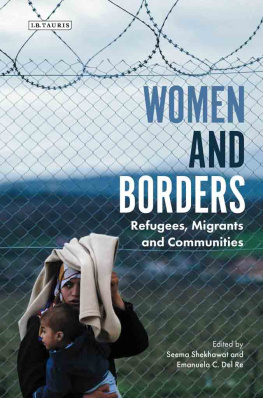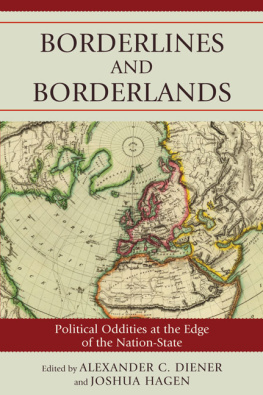European Border Regions in Comparison
Borders exist in almost every sphere of life. Initially, borders were established in connection with kingdoms, regions, towns, villages and cities. With nation- building, they became important as a line separating two national states with different national characteristics, narratives and myths. The term border has a negative connotation for being a separating line, a warning signal not to cross a line between the allowed and the forbidden. The awareness of both mental and factual borders in manifold spheres of our life has made them a topic of consideration in almost all scholarly disciplineshistory, geography, political science and many others. This book primarily incorporates an interdisciplinary and comparative approach. Historians, sociologists, anthropologists and political science scholars from a diverse range of European universities analyze historical as well as contemporary perceptions and perspectives concerning border regionsinside the EU, between EU and non-EU European countries, and between European and non-European countries.
Katarzyna Stokosa is Associate Professor in the Department of Border Region Studies at the University of Snderborg.
Gerhard Besier holds the Chair in European Studies at the Technical University of Dresden.
Routledge Studies in Modern European History
1 Facing Fascism
The Conservative Party and the European dictators 19351940
Nick Crowson
2 French Foreign and Defence Policy, 19181940
The Decline and Fall of a Great Power
Edited by Robert Boyce
3 Britain and the Problem of International Disarmament
19191934
Carolyn Kitching
4 British Foreign Policy 18741914
The Role of India
Sneh Mahajan
5 Racial Theories in Fascist Italy
Aaron Gilette
6 Stormtroopers and Crisis in the Nazi Movement
Activism, Ideology and Dissolution
Thomas D. Grant
7 Trials of Irish History
Genesis and Evolution of a Reappraisal 1938-2000
Evi Gkotzaridis
8 From Slave Trade to Empire
European Colonisation of Black Africa 1780s1880s
Edited by Olivier Ptr-Grenouilleau
9 The Russian Revolution of 1905
Centenary Perspectives
Edited by Anthony Heywood and Jonathan D. Smele
10 Weimar Cities
The Challenge of Urban Modernity in Germany
John Bingham
11 The Nazi Party and the German Foreign Office
Hans-Adolf Jacobsen and Arthur L. Smith, Jr.
12 The Politics of Culture in Liberal Italy
From Unification to Fascism
Axel Krner
13 German Colonialism, Visual Culture and Modern Memory
Edited by Volker M. Langbehn
14 German Colonialism and National Identity
Edited by Michael Perraudin and Jrgen Zimmerer
15 Landscapes of the Western Front
Materiality during the Great War
Ross J. Wilson
16 West Germans and the Nazi Legacy
Caroline Sharples
17 Alan S. Milward and a Century of European Change
Edited by Fernando Guirao, Frances M. B. Lynch, and Sigfrido M. Ramrez Prez
18 War, Agriculture, and Food
Rural Europe from the 1930s to the 1950s
Edited by Paul Brassley, Yves Segers and Leen Van Molle
19 Totalitarian Dictatorship
New Histories
Edited by Daniela Baratieri, Mark Edele and Giuseppe Finaldi
20 Nurses and Midwives in Nazi Germany
The Euthanasia Programs
Edited by Susan Benedict and Linda Shields
21 European Border Regions in Comparison
Overcoming Nationalistic Aspects or Re-Nationalization?
Edited by Katarzyna Stokosa and Gerhard Besier
First published 2014
by Routledge
711 Third Avenue, New York, NY 10017
and by Routledge
2 Park Square, Milton Park, Abingdon, Oxon OX14 4RN
Routledge is an imprint of the Taylor & Francis Group, an informa business
2014 Taylor & Francis
The right of Katarzyna Stokosa and Gerhard Besier to be identified as the authors of the editorial material, and of the authors for their individual chapters, has been asserted in accordance with sections 77 and 78 of the Copyright, Designs and Patents Act 1988.
All rights reserved. No part of this book may be reprinted or reproduced or utilised in any form or by any electronic, mechanical, or other means, now known or hereafter invented, including photocopying and recording, or in any information storage or retrieval system, without permission in writing from the publishers.
Trademark Notice: Product or corporate names may be trademarks or registered trademarks, and are used only for identification and explanation without intent to infringe.
Library of Congress Cataloging-in-Publication Data
European border regions in comparison : overcoming nationalistic aspects or re-nationalization? / edited by Katarzyna Stoklosa and Gerhard Besier.
pages cm. (Routledge studies in modern European history ; 21)
1. BorderlandsSocial aspectsEurope. 2. Borderlands EuropeHistory. 3. EuropeRelations. 4. RegionalismEurope. 5. NationalismEurope. 6. Group identityEurope. I. Stoklosa, Katarzyna, author, editor of compilation. II. Besier, Gerhard, author, editor of compilation.
JN34.5.E874 2014
320.54094dc23
2013033532
ISBN13: 978-0-415-72598-9 (hbk)
ISBN13: 978-1-315-81560-2 (ebk)
Katarzyna Stokosa and Gerhard Besier
Some Thoughts Regarding the Study of Borders and Border Regions
Borders exist in almost every sphere of life. Acting as a line separating different groups, the term border is overwhelmingly pejorative in its connotations. Nevertheless, people often cross borders as they are fascinated by the unknown and the assumed new. Time and again we observe parents instructing their children: Be careful! Dont cross the border! Such admonitions are warning signals to those not to cross a line between the allowed and the forbidden, the latter being possibly dangerous or in discord with conventional cultural conventions. In recent times, not least due to the societal impact of terrorist attacks, the border between good and evil has been subject to intense discussion.
The cartographical depiction of a border functions as a geographical and political act of self-demarcation by an in-group. Initially established as often flexible lines demarcating kingdoms, regions, towns, villages, and cities, the age of nationalism in the 19th century established and increased their significance and immutability. National borders now became a line separating areas of purported national difference. Organized around supposedly innate national characteristics, narratives, and myths, they were now considered with something approaching holy reverence.1
The considerable influence exerted by borders and their presence in both mental and physical maps make them a natural point of interest for a number of scholarly disciplines. Contemporary historians, geographers, political scientists, linguists, anthropologists, psychologists, and many others are all engaged in intensive consideration of their nature and impact. In the 19th and first half of the 20th century, borders were studied primarily by political geographers dealing with the phenomenon of a border as a natural border characterized by a strong expansive component.2 The representatives of such a school of thought included Friedrich Ratzel (

